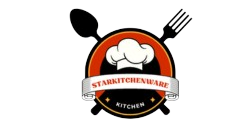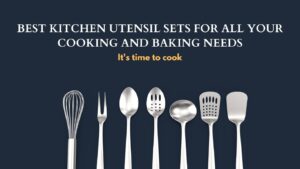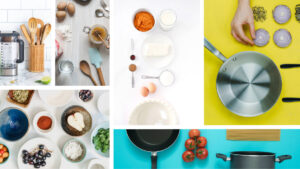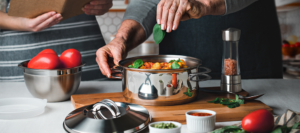Aluminum cookware has been a staple in kitchens around the world for decades. Known for its excellent heat conductivity, lightweight nature, and affordability, guide to Aluminum Cookware is a favorite among home cooks and professional chefs alike. In this article, we’ll explore the benefits, uses, and care tips for aluminum cookware to help you make the most of this versatile kitchen essential.
Benefits of Aluminum Cookware
- Excellent Heat Conductivity Aluminum is one of the best materials for heat conductivity, ensuring even heating across the surface of the cookware. This means your food cooks uniformly, reducing the chances of hot spots and burnt food.
- Lightweight and Easy to Handle One of the significant advantages of guide to Aluminum Cookware is its lightweight nature. This makes it easy to handle, especially when cooking large meals or when you need to move the cookware from the stove to the oven.
- Affordable Aluminum cookware is generally more affordable compared to other materials like stainless steel or copper. This makes it an excellent choice for those who want high-quality cookware without breaking the bank.
- Durability Modern aluminum cookware, especially those with anodized or coated surfaces, is highly durable and resistant to scratches and dents. This ensures a long lifespan, even with regular use.
- Versatility Aluminum cookware is suitable for a wide range of cooking methods, including frying, sautéing, boiling, and baking. Its versatility makes it a valuable addition to any kitchen.
Uses of Aluminum Cookware
- Frying and Sautéing Aluminum frying pans and sauté pans are perfect for cooking eggs, pancakes, stir-fries, and more. Their excellent heat distribution ensures that your food cooks evenly and quickly.
- Boiling and Simmering Aluminum pots and saucepans are ideal for boiling pasta, making soups, and simmering sauces. Their lightweight nature makes them easy to lift and pour, even when filled with liquid.
- Baking Aluminum baking sheets and roasting pans are great for baking cookies, roasting vegetables, and even baking cakes. The even heat distribution helps achieve perfectly cooked and browned results.
- Grilling and Broiling Aluminum grill pans and broiler pans can withstand high temperatures, making them suitable for grilling meats and vegetables or broiling dishes in the oven.
Care Tips for Aluminum Cookware
- Hand Wash Only To preserve the integrity of your aluminum cookware, it’s best to hand wash it with mild detergent and warm water. Avoid using abrasive sponges or harsh chemicals that can damage the surface.
- Avoid High Heat While aluminum conducts heat well, it’s best to avoid using it on very high heat settings for prolonged periods. This can help prevent warping and prolong the life of your cookware.
- Seasoning Anodized Aluminum If you have anodized aluminum cookware, consider seasoning it to enhance its nonstick properties. Lightly coat the surface with oil and heat it over medium heat for a few minutes, then wipe off any excess oil.
- Use Wooden or Silicone Utensils To prevent scratching the surface of your aluminum cookware, use wooden or silicone utensils instead of metal ones. This is especially important for nonstick or anodized aluminum surfaces.
- Store Properly Store your aluminum cookware properly by stacking them with protective layers, such as kitchen towels, between each piece. This prevents scratches and dents when they are not in use.
Conclusion
Aluminum cookware is a versatile, affordable, and efficient option for any kitchen. Its excellent heat conductivity and lightweight nature make it a favorite among both home cooks and professional chefs.
By following the proper care tips, you can ensure that your aluminum cookware lasts for years and continues to perform at its best.
Whether you’re frying, boiling, baking, or grilling, aluminum cookware is a reliable and valuable addition to your culinary arsenal.





